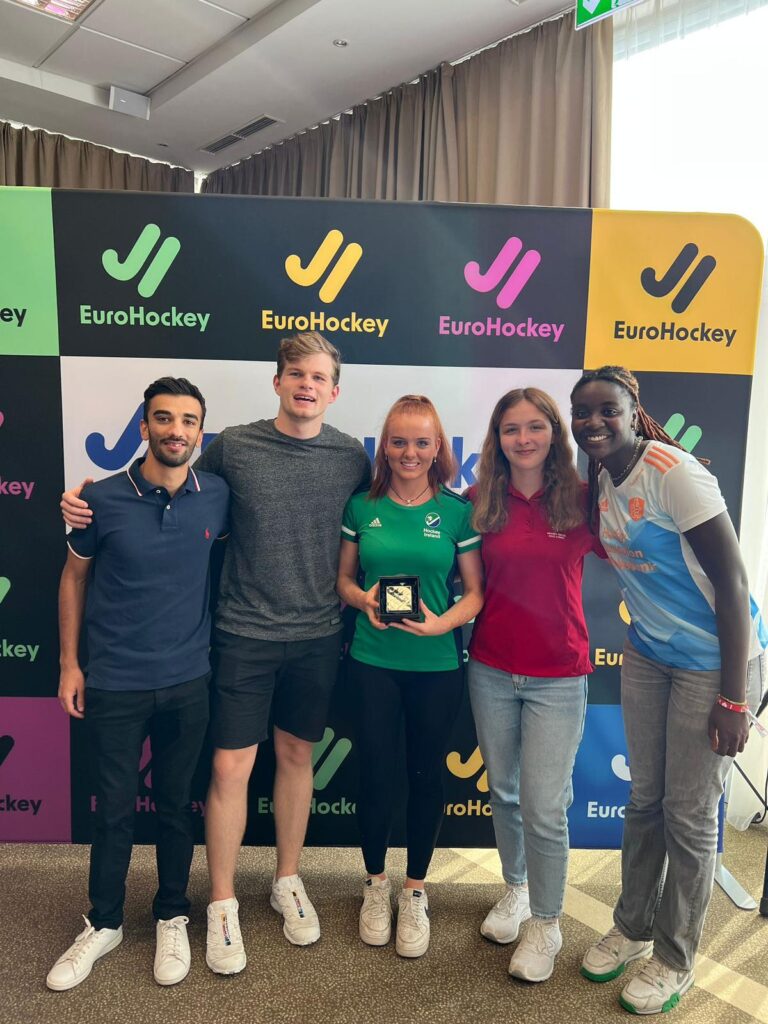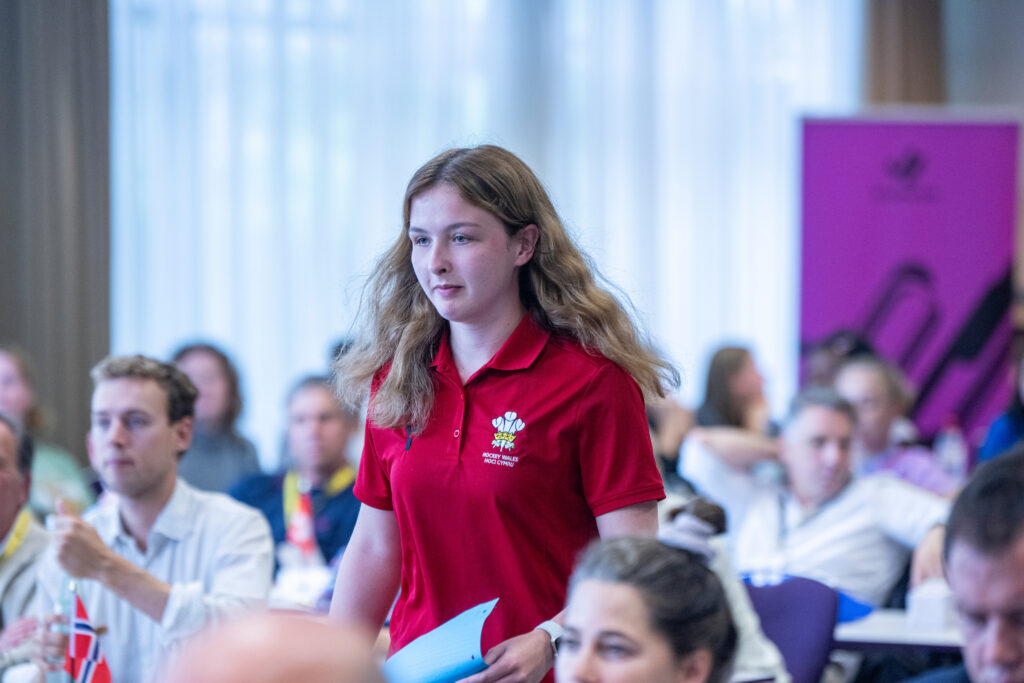Lily Morgan says the experience of presenting her project Autism and Inclusivity within the Hockey Wales Community to the EuroHockey General Assembly in August is “just the start”.
The 18-year-old developed the project in tandem with her current club Cardiff & Met in the past year, combining a love for the sport with her own autism diagnosis a year ago.
Once the diagnosis came, she dove into hardcore research on neurodiversity and everything around that and how it tallied with her own experiences.
And it led to her looking into ways in which she could help hockey become more inclusive, ultimately setting up a pilot scheme.
“The diagnosis allowed me to realise how I can develop my knowledge to support players who are neurodiverse to make them feel more comfortable,” she said.
“Even basic things like utilising equipment, it’s allowed me to see the struggles I did face.
“My original vision was to create an inclusive hockey community, a hockey environment which is comfortable for all, and to equip our coaches and staff to be able to provide that inclusivity.”

She first took up the game as a 10-year-old following local taster sessions at her school in Cwmbran, leading her to join Gwent Hockey Club a few minutes from her home.
“I gave it a go and loved it ever since!”
Within three years, she was soon getting stuck in both on and beyond the turf.
“Hockey Wales has a great young ambassador programme and both of my siblings joined it before me. When I could join at 13, I was straight in there because the opportunities it gives you are incredible.
“Whether it be coaching, leadership, real key opportunities to develop yourself and I found it so useful. It provides you with a different area in the community – you have the playing background but you also have like-minded individuals who want to grow the sport and develop themselves.”
Coaching was her particular love, working with the local club and embarking on the Welsh pathway, picking up a Level One badge and working at junior development centres. Last year, she helped coach the Welsh Over-55s Masters side.
It was an outlet away from school and the academic space where she admits she often had difficulties.
It culminated in her final exam year in school when she “struggled massively” which prompted her to visit her school’s Learning Support staff; they suggested getting assessed for autism.
“It was definitely something I felt I needed because I didn’t really understand myself and how to get support. It has allowed me to understand myself a lot more.”
People do ask whether she would have wished for an earlier diagnosis. In hindsight, she says the relative lateness gave her vital additional insight and experiences which she may not have gained otherwise.
Such thoughts formed the genesis of a pilot study she put together with the coaches at Cardiff & Met, the club – linked to Cardiff Metropolitan University – who she moved to once she had her sights set on studying Sports Performance Analysis.
With positive feedback, her project now aims to equip coaches with the information they need to ensure each individual feels comfortable in every hockey session.
“The key is it can often be ‘overthinked’,” she says of the nuts and bolts of the pilot. “There are ways you can adapt a session for neurodiverse individuals, whether it be changing equipment – little things like using different cones, using sounds, simple things that can be integrated into a club space.
“For me, it was key to see coaches now have the knowledge and can apply it in an everyday session.
“Basic knowledge like how to welcome in an autistic player; how the coach can speak to their parents; how they can support players or adjust their communication, how they use their body language and gestures or how they use their equipment to ensure that individuals don’t experience sensory overload.”

From there, she has engaged with Disability Sport Wales and Cardiff Met Learning Support Staff and is aware this kind of project will be a long-term one with many different avenues.
“Neurodiversity is such a big area to cover. I have tried to expand to ADHD, dyslexia, dyspraxia. What I presented in Germany was focused on autism but it is important to broaden it because there is so much under the umbrella.
“Every neurodiverse individual is different with different preferences. There are similarities but what is key – and Hockey Wales are with me on this – is this project will be constantly ongoing and growing.
“There is no timeframe because there can’t be; as research grows, our knowledge will grow. We’ll be able to provide more information and develop how we are educating our coaches in the community.
“It is a struggle but it is amazing, off the back of the pilot at Cardiff & Met where I delivered loads of information, seeing the coaches make the small adjustments for their players is really powerful.”
She was able to showcase her work as a representative of Hockey Wales at the EuroHockey Youth Festival in August and was selected as one of the stand-out projects.
It offered the opportunity to speak about it in front of 140 people from member national associations from all around Europe at the General Assembly in Dusseldorf.
That captured a wider audience and a feature article on the BBC website followed recently.
“The support off the back of presenting in Germany has been incredible, from Hockey Wales to the general hockey community, the amount of people who have reached out looking for more information has been so empowering.
“The initial aim – in hockey – is to create a platform where we have the ability to support all players because autism is so broad. Whether verbal or non-verbal, we want to be able to direct them to a hockey-space which is a task I am really looking forward to.
“Presenting in front of so many people at the Assembly was so out of my comfort zone but so rewarding and I am so glad I did it. It has been incredible since when this project started to see the positivity around it and to see where it can go.
“I have such passion for this and am really striving to make sure it has an impact. Germany was just the start and I am looking forward to what is to come!”
***
For more information from organisations who have helped shaped Lily’s project, go to the following websites: